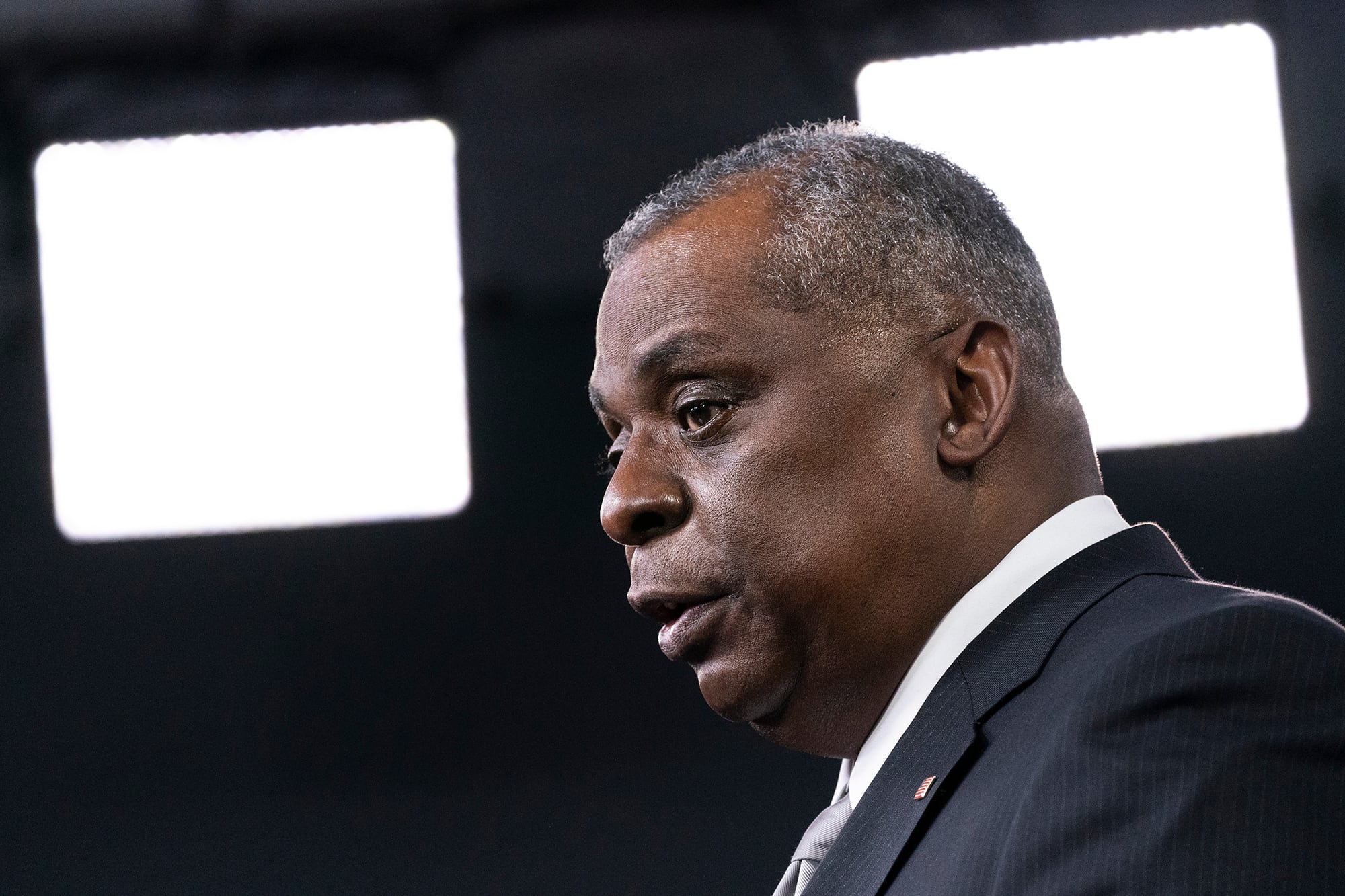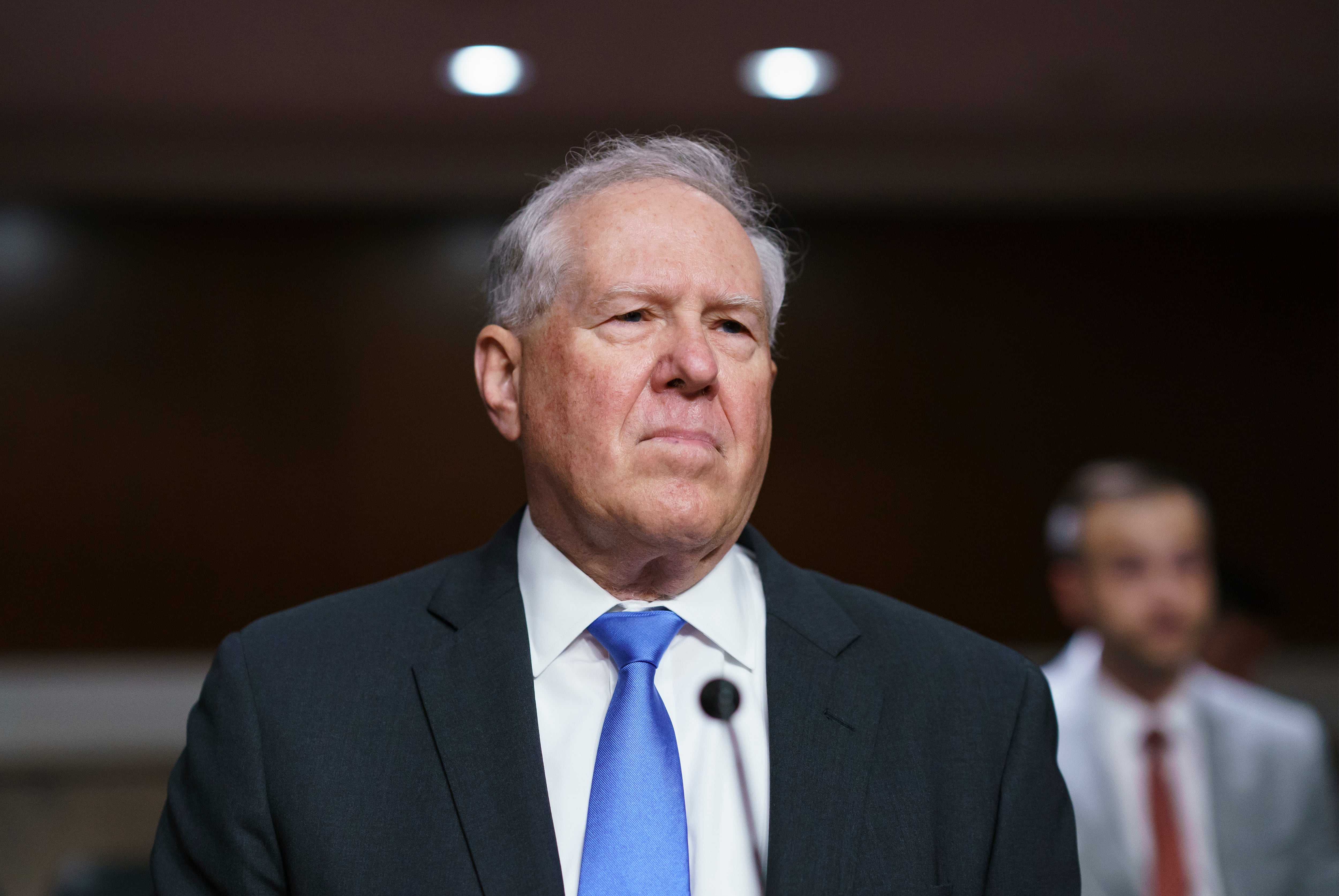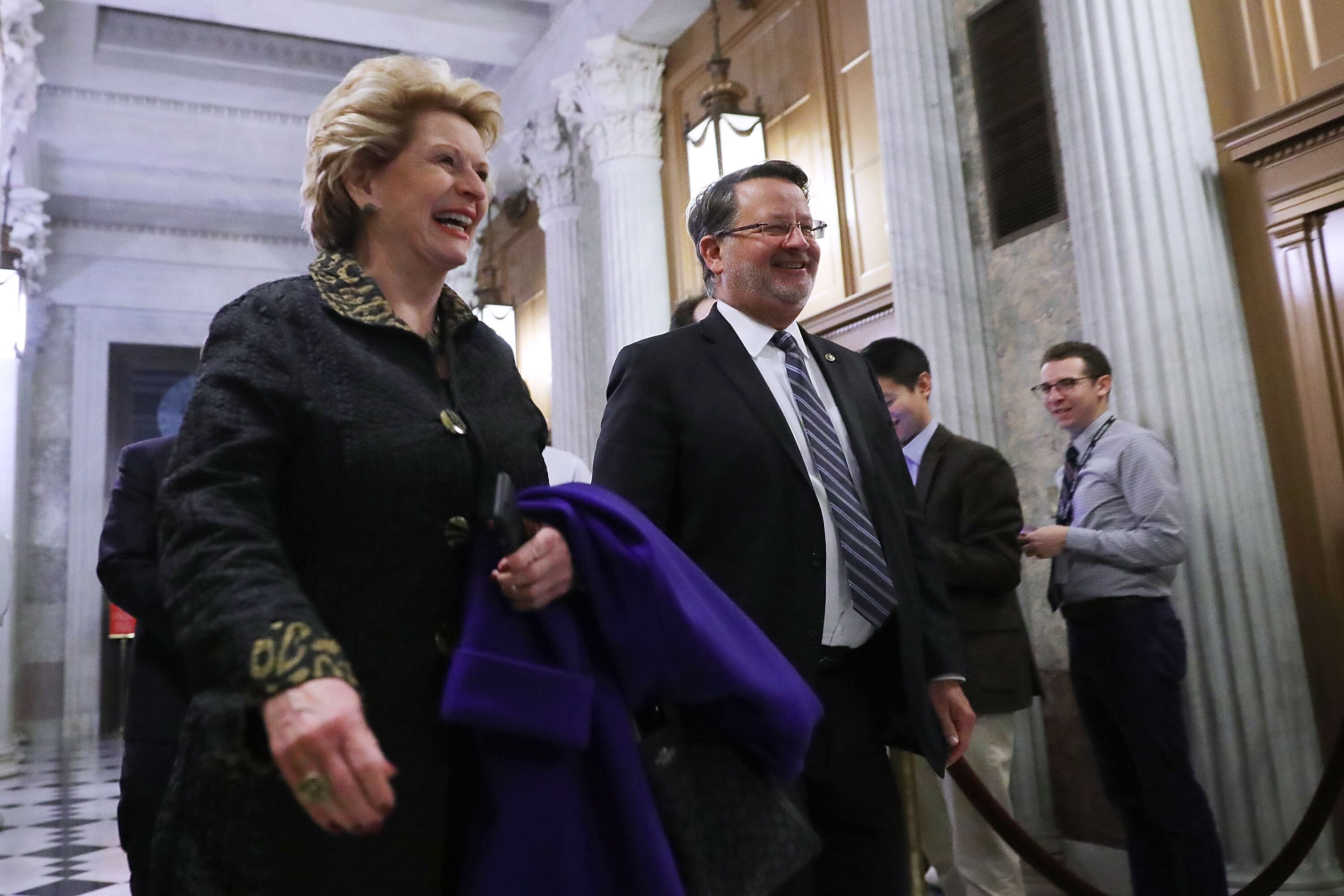WASHINGTON — A dozen of President Joe Biden’s senior national security nominees — including his pick to lead the Air Force — are stalled in the Senate because multiple senators have placed procedural holds on their confirmations, Defense News has learned. The delay slows the administration’s efforts to introduce new military leaders and policies early in its tenure.
Since early June, the Senate Armed Services Committee has recommended a dozen nominees to the full chamber, but at least three lawmakers from both parties are using those positions to bargain with the administration over various concerns, such as basing and acquisition decisions. It’s unclear whether any of the nominees will receive a Senate floor vote before Congress breaks for August recess or whether other national security leaders could face similar delays.
“It’s important to get the Department of Defense staffed promptly, and we’re working to do that,” SASC Chairman Jack Reed, D-R.I., told Defense News on Tuesday. “I’m not going to comment on my discussions [with fellow senators], but my goal and my responsibility is to get people confirmed.”
RELATED

On Tuesday morning, the process of approving Biden’s Pentagon leaders appeared to be moving forward after news Sen. Elizabeth Warren, D-Mass., lifted her holds on Air Force secretary nominee Frank Kendall and Heidi Shyu, tapped to lead Pentagon weapons development. But hours later, Michigan Democratic Sens. Gary Peters and Debbie Stabenow told Defense News they are delaying a vote on Kendall as well as an undisclosed number of other Pentagon nominees.
“I have ‘holds’ on some folks,” Peters said ahead of a meeting with Air Force officials Tuesday. “I don’t need to get into the details, but obviously we need to ... get more information, and we’re going to press hard to get that information.”
The Senate “hold” is an informal practice through which senators convey their objections over a nominee to Senate leaders and deny unanimous consent to proceed to confirmation. Senate Majority Leader Chuck Schumer, D-N.Y., can call a cloture vote to override such objections, which requires a simple majority of 51 votes ― though he hasn’t done so with the nominees in limbo.
Those people include: Kendall and Shyu; DoD assistant defense secretary picks Deborah Rosenblum, Christopher Maier, Ely Ratner and Shawn Skelly; DoD general counsel nominee Caroline Krass; Cost Assessment and Program Evaluation director nominee Susanna Blume; Air Force undersecretary nominee Gina Ortiz-Jones, and assistant Navy secretary nominee Meredith Berger.
Two picks for defense-related jobs at the Energy Department are also stalled: Jill Hruby and Frank Rose, who were tapped to hold the top two positions at the National Nuclear Security Administration, which manages the national nuclear warhead stockpile.
Pentagon leaders are keen to see the nominees in place soon, according to Pentagon spokesman John Kirby.
“We won’t speak to individual actions taken by lawmakers, except to say that the Department very much looks forward to these nominees moving through the confirmation process as quickly as possible,” Kirby said in an email. “They are qualified and experienced professionals, and we look forward to having them assist us in the critical national security tasks we face.”
RELATED

Sixty-one key civilian jobs at the Department of Defense require Senate confirmation. Of Biden’s defense nominees so far, the Senate has confirmed six (but none since May 28), 10 are awaiting Senate floor action, five are awaiting a SASC vote, and four are awaiting SASC confirmation hearings.
The Michiganders’ resistance to Kendall is rooted in objections to the military’s decision in June to house an F-35 Joint Strike Fighter international training center at Arkansas’s Ebbing Air National Guard Base instead of Michigan’s Selfridge Air National Guard Base.
“We’re still getting information right now,” Peters said. “We’re meeting with the Air Force to get a better understanding of how that decision was made because, based on the facts as I review them, Selfridge was clearly the best place to locate that mission, and I need more clarification from the Air Force as to how they arrived at what I think was an erroneous decision.”
Stabenow said she and Peters were “discussing how far” to take their concerns, adding after their meeting with Air Force officials that there had been “no resolution” but “a lot of tough questions.”
Air National Guard spokesperson Lt. Col. Devin Robinson said the Guard is “certainly aware” of the situation with the Michigan senators. Air Force spokesperson Sarah Fiocco said that the service “uses its strategic basing process to select mission locations, evaluating installations based on factors related to mission requirements, infrastructure capacity, community support and cost.”
RELATED

Utah Republican Sen. Mike Lee had a hold on Kendall as well, Inside Defense reported last month. Lee’s office has not responded to multiple requests for comment.
Another Republican, Sen. Roger Wicker, confirmed Tuesday that he is stalling Blume’s nomination to lead CAPE. The hold, first reported by Politico, was not about Blume per se, but to pressure the Navy to commit to buying four amphibious ships in a single “block buy.” Proponents say it would be cheaper than acquiring the ships individually.
“I have not gotten my concerns met,” Wicker, of Mississippi, told Defense News. “We need a bigger Navy and we need to save money, and there’s a real easy way to do that, by doing a block buy.”
Sometimes the tactic of delaying confirmation votes by placing holds works. Warren relented on Kendall and Shyu on Tuesday after they agreed to four-year ethics pledges and defense industry job recusals, according to a congressional aide familiar with the talks.
The separation between industry and the Pentagon has been an important issue for Warren, who pressed Defense Secretary Lloyd Austin to make a similar pledge during his own confirmation process earlier this year.
“I’ll be mindful not only of the legal requirements that govern my conduct, but also of the appearances to ensure that the public has no reason to question my impartiality,” Austin said in January.
“Going above and beyond what federal law requires, as you are doing here, sends a powerful message that you are working on behalf of the American people and no one else,” Warren replied.
Kendall and Shyu, who have each worked in the defense industry, also agreed not to seek waivers for those ethics pacts. The agreements block Pentagon officials from working on procurement deals and other matters involving companies to which they have prior ties, including Raytheon, where both nominees held senior leadership positions.
Kendall served as the Pentagon’s top acquisition official from May 2012 to January 2017 and has spent nearly 50 years in the defense and national security sectors. Shyu held the Army’s top acquisition job from September 2012 to January 2016 as well, among other positions in industry.
Warren introduced legislation in 2019 that would have banned large defense contractors from hiring senior Pentagon officials and officers for four years after they leave office. She hasn’t ruled out placing holds on future Pentagon nominees to extract similar ethics pledges.
“This is definitely something that she will continue to push,” the congressional aide said.
Valerie Insinna of Defense News contributed to this story.
Joe Gould was the senior Pentagon reporter for Defense News, covering the intersection of national security policy, politics and the defense industry. He had previously served as Congress reporter.
Rachel Cohen is the editor of Air Force Times. She joined the publication as its senior reporter in March 2021. Her work has appeared in the Washington Post, the Frederick News-Post (Md.), Air and Space Forces Magazine, Inside Defense, Inside Health Policy and elsewhere.





